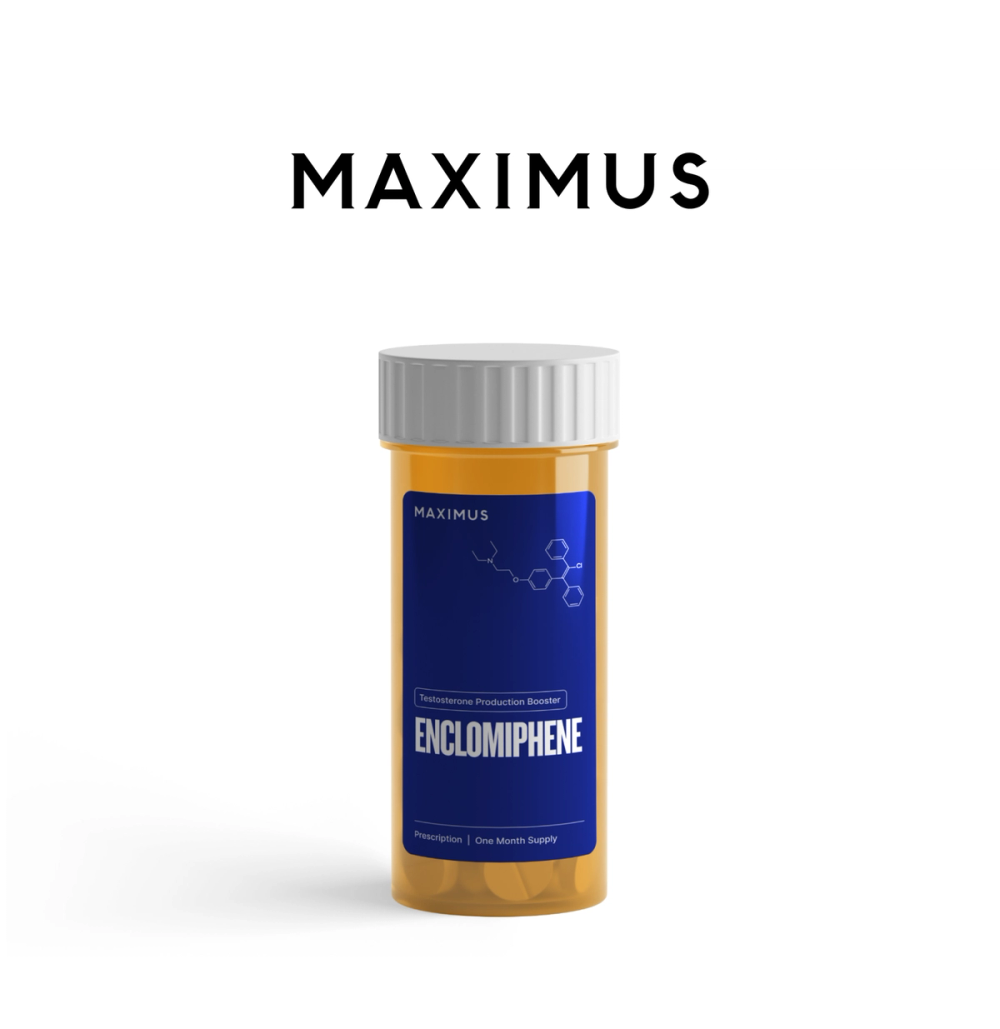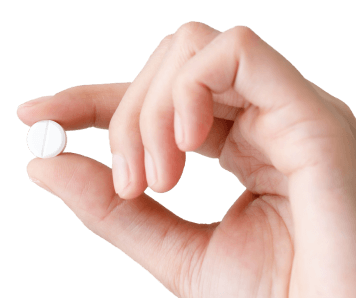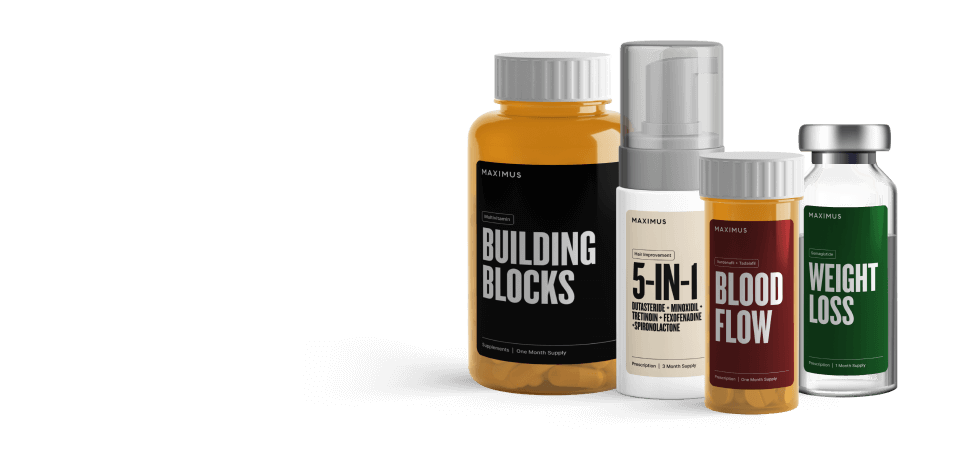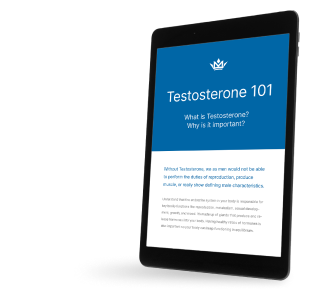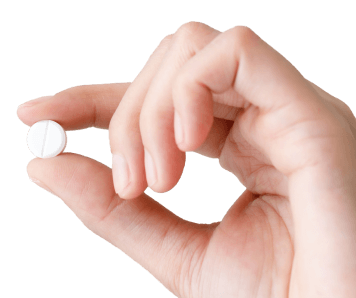Key Takeaways
- Research suggests a strong relationship between vitamin D levels and testosterone production, with potential benefits for fertility and overall hormonal balance. While the exact mechanisms are still being studied, evidence indicates that maintaining optimal vitamin D levels supports reproductive health.
- Vitamin D receptors are found throughout the male reproductive system, suggesting a direct role in testosterone regulation. Ensuring sufficient vitamin D intake may contribute to improved testosterone bioavailability and overall endocrine function.
- While some studies show vitamin D supplementation increases testosterone, results vary based on factors like BMI, baseline levels, and study duration. More research is needed, but maintaining adequate vitamin D remains a key factor in overall health and hormone optimization.
Could one simple vitamin be the key to higher testosterone levels?
Research suggests that vitamin D — often associated with bone health — plays a crucial role in hormone metabolism, yet most men don’t get enough of it.
If your vitamin D levels are lacking, do your T levels take a hit too?
Let’s break down how vitamin D is connected to testosterone and see how it stacks up against other popular T-boosting supplements. Plus, we’ll cover the best natural ways to keep your vitamin D levels optimized for better health.
The connection between vitamin D and testosterone
Vitamin D is more than just part of your daily multivitamin — it functions as a hormone in the body, influencing many physiological processes.
Vitamin D supports immune health, cardiovascular health, endocrine health, muscle function, and brain cell activity.
It also has anti-inflammatory and antioxidant properties.
But here’s where it gets really interesting — research suggests that vitamin D isn’t just good for overall health — vitamin D levels are also associated with improved markers of testosterone and fertility.
Studies have shown that men with higher vitamin D levels tend to have:
- Higher sperm count and concentration
- Improved semen quality
- Higher total testosterone
How could vitamin D influence testosterone?
There is no single, universally accepted mechanism that shows how vitamin D influences testosterone levels.
But various underlying links suggest there may be a connection between the two. However, more research is needed given that some studies on vitamin D and testosterone have conflicting findings.
Vitamin D has been linked to testosterone production through several mechanisms, including:
Vitamin D may support testosterone production from Leydig cells
Leydig cells are a cell type found within testicles that produce testosterone. One study found that stimulating testicular tissue directly with vitamin D increases the amount of testosterone released by Leydig cells. However, the researchers noted that additional larger, placebo-controlled studies are needed to determine whether vitamin D supplementation influences testosterone production.
Vitamin D receptors are found in male reproductive organs and sperm
Vitamin D receptors are embedded throughout the male reproductive system, from the testes, to the epididymis, prostate, and even sperm cells. This suggests that vitamin D plays an important role in testosterone production and men’s health. More research is needed to fully understand the effect of vitamin D activation in these regions.
Vitamin D may reduce sex hormone-binding globulin (SHBG)
SHBG plays a crucial role in regulating the bioavailability of testosterone.There’s some evidence that there’s a correlation between higher vitamin D levels and lower SHBG, which could result in more free testosterone. But the current evidence is mixed and more research is needed.
Vitamin D supports overall hormonal balance
Vitamin D plays a role in overall hormonal balance, partly by influencing the hypothalamic-pituitary-adrenal (HPA) axis, which regulates hormones such as cortisol. Some research also shows that vitamin D is linked to adrenal health, which is crucial for maintaining stable hormone levels.
Does vitamin D boost testosterone?
Whether or not vitamin D boosts testosterone directly has been widely studied, and while some evidence suggests a positive association, the overall findings remain inconclusive.
A 2011 study found that supplementing with vitamin D for 12 months may increase testosterone levels in men, though the researchers noted that more research is needed.
The study suggests that maintaining optimal vitamin D levels could be a natural way to support healthy testosterone production — but the story doesn’t end there.
The study population was overweight men that started with low testosterone levels to begin with.
Whether or not vitamin D can increase testosterone levels in healthy men requires further research.
One 2019 study found no effect of vitamin D supplementation on testosterone levels. However, this study had a relatively small sample size and was only conducted for 12 weeks. A 2023 literature review of eight different studies also had inconclusive findings regarding the effects of vitamin D supplementation on testosterone levels.
More research is needed to understand how factors like BMI, age, and genetics mediate the relationship between vitamin D and testosterone.
Vitamin D vs. other testosterone boosters
There are many multivitamin supplements marketed for increasing testosterone. How does vitamin D compare?
Vitamin D vs. zinc
Both vitamin D and zinc are crucial for overall health and hormone production, but they work in different ways.
Zinc plays an important role in testosterone synthesis and also helps prevent testosterone from converting into estrogen, keeping T levels optimized.
Meanwhile, vitamin D acts as a prohormone, which the body metabolizes into calcitriol, which is the active form of vitamin D. Calcitriol binds to vitamin D receptors throughout the male reproductive system, which supports reproductive health.
Both are foundational in Maximus’s Building Blocks, ensuring you get the best of both worlds.
Vitamin D vs. D-aspartic acid (DAA)
DAA is often hyped as a testosterone booster, based on early human research that reported a 42% increase in testosterone levels in untrained men.
Unfortunately, this feat hasn’t been replicated in men who regularly resistance train, and results have been inconsistent in the long run.
DAA may provide a testosterone spike for those just starting out on their fitness journey, but the science does not show sustained benefits for regular trainers. In fact, DAA may even decrease testosterone in this population.
On the other hand, research shows that Vitamin D supports long-term muscle performance. Many athletes do not have sufficient vitamin D levels, which has the potential to impact both performance and the risk of injury.
Vitamin D vs. ashwagandha
Some research shows that Ashwagandha has benefits like lowering cortisol, decreasing anxiety, and promoting sleep, which indirectly helps maintain testosterone levels.
A systematic review that looked into the effects of ashwagandha supplementation on testosterone levels found a positive effect of ashwagandha on testosterone levels, but the researchers noted that more studies are needed.
Both supplements have inconsistent results when it comes to increasing testosterone.
Deciding between them comes down to personal goals: ashwagandha is specifically known for its effects on stress, while vitamin D plays a broader role in hormonal balance, bone health, muscle strength, and immune function.
Research shows that vitamin D supplementation can increase testosterone levels, but primarily in men with a deficiency.
Vitamin D vs. Tribulus terrestris
Tribulus terrestris is widely marketed as a testosterone booster, but scientific studies do not conclusively support its effectiveness.
Multiple studies have demonstrated that Tribulus terrestris does not increase testosterone levels in healthy men or athletes.
One study found that Tribulus terrestris supplementation did not correlate with improved athletic performance or body composition in male athletes.
How to increase vitamin D levels naturally
Since vitamin D supports testosterone production, muscle strength, and immune function, it’s essential to make sure you get enough of it daily. Here are the best ways to boost your vitamin D levels naturally:
1. Get more sunlight
- The body produces vitamin D when exposed to sunlight. Aim for 15 to 30 minutes of midday sun on bare skin several times a week.
- If you live in a region with limited sunlight, supplementation is highly recommended.
2. Eat vitamin D-rich foods
- Fatty fish (salmon, mackerel, sardines)
- Egg yolks
- Beef liver
- Fortified foods, such as dairy products and orange juice
3. Take a vitamin D3 supplement
- D3 (cholecalciferol) is the most effective form of vitamin D.
- A daily dose of 5,000 IU is generally safe and effective, extending up to 10,000 IU if under medical supervision to correct a deficiency.
- For better absorption, pair it with magnesium and vitamin K2.
4. Optimize your magnesium levels
- Magnesium helps activate vitamin D in the body.
- Magnesium-rich foods include spinach and other leafy greens, almonds and other nuts and seeds, bananas, and avocados.
Vitamin D: A game-changer for men’s health
Vitamin D is one of the best supplements you can take.
If you want to support hormonal health, muscle growth, and energy levels, make vitamin D a priority in your daily routine.

